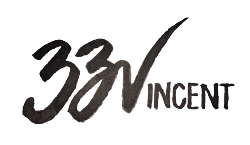Expert Assistants: A Guide to Event Planning
As many organizations look forward to bringing back in-person events after a year of cancellations or shifting to virtual, now is a great time to brush up on your event planning skills! Executive assistants are already expert planners, whether that be planning an executive’s ideal week or making travel arrangements, so it is natural to lend these superior organization and communication skills to planning a successful event. Buf if you need a refresher on event planning tips, we have you covered!
Determine the Purpose of Your Event
First things first—you need to determine your event’s purpose. An expert assistant will help ensure everything on the calendar is truly worth their executive’s time, and event planning is no exception. By honing in on the event’s purpose, you are setting the foundation to build a successful event. Other important starting points are the target number of attendees, suitable venues, start time and length, and the format of the event. Some other important considerations include:
Is the purpose of the event fun? If so, you want a venue and agenda that’s going to provide a light-hearted atmosphere and room for recreation.
Do you want the event to be a time of refreshment and relaxation? If so, a quiet venue and low-key agenda will be important.
Is the event business-focused or centered around bringing people together to make a decision or share information? A professional event space with plenty of room for meetings or mingling is vital. A virtual event might also be appropriate depending on the event’s goals.
Always remember to check each venue’s capacity too. You want to ensure that it will hold the number of people you expect, but it’s also good to consider venues slightly larger too. (For example, booking a 125 person venue for 100 guests.) Bringing a venue all the way to its maximum capacity is a sure way to be cramped, which can negatively affect the entire event experience.
Confirm Your Event’s Budget
When offering event planning support to your executive or organization, it’s vital to have a clear understanding of the budget. Know your overall budget and then break it down into subcategories for vendors such as venue, speakers, caterers, and entertainment––that way you can be transparent when evaluating vendors during the planning process and easily weed out those that won’t fit the bill.
Believe it or not, a budget can also be liberating! A good budget will allow you to pick and choose which categories are the most important, allowing excess funds to be placed in more important categories. For example, if you find a good venue for less than you had expected, you’ll be able to splurge on entertainment or dining. You’ll be a hero when you pull off an unforgettable event and stick to the set budget!
Set the Event Date
Your executive might already have a general time frame in mind for an event, but there are some helpful considerations when nailing down the specifics. In order to maximize attendance, it’s important to avoid certain dates for an event, such as:
Overlapping with or close to already-planned company events or commitments
Conferences within your industry
Other large cultural events, such as sports championships
Religious or federal holidaysSchool breaks, especially if your target attendees have families
It’s also important to consider what day of the week you hold your event. For business events, Tuesday and Thursday are usually the best choice. Fridays can work well for fun-oriented events, and it’s always good to stay away from the weekend and Mondays. If you already have a venue or speaker in mind, their availability might determine the date that you choose for your event.
Book Your Vendors
Now that you have a date set and an established budget, you can start evaluating various vendors. Here is a list of some vendors you may want to consider:
Event venue: Think outside of the box here! Here’s a great guide to finding the perfect venue.
Caterers or bartenders
Entertainment: This might include speakers, music, comedians, presenters, teachers, etc. depending on the nature of the event.
Rentals and decor: Some venues have the perfect setting as-is, but others might require that chairs, tables, tents, and additional decor be brought in
Staff: Your executive’s organization might be able to staff the event single-handedly, but if not, you might need to bring in personnel or volunteers to manage registration, event logistics, facilitating meals, etc.
A/V: Again, this is something often included with a venue but others, especially those outdoors, might require sound systems and other technology be brought in.
Marketing: If this event is being offered to those outside of your exec’s organization, it’s important to have a plan for and assistance with marketing to ensure that your target audience is aware of the event.
Maintain Strong Communication and Organization Systems
Throughout the event planning process, which can span weeks, months, or even years, it’s vital to remain in close contact with the vendors that have been booked. They will need to gather details—like timelines, key contacts, and registration numbers—from you so you can host an event that goes off without a hitch. Likewise, you’ll want to gather key details from them to build into your event plan.
What to do with all of this information? Expert executive assistants live by their organization systems, and this is no exception. By organizing all of your vendor correspondence, documents and information, you can find all the details at the drop of a hat. For email organization, we love email labels (and sub labels!) for all vendors and aspects of an event so that everything is in its proper place. Two of our other favorite tools for organizing event details are Google Suite and Airtable.
Here are some great ways to organize your event planning information:
With Google Sheets, you can track budgets, vendor contacts, attendee lists, and more.
We love using Social Tables to easily design seating charts and room arrangements to provide to your venue’s setup team.
If you’re also managing registration for the event, Eventbrite equips you with registration pages and attendee communication tools.
Google Docs is great for producing event agendas, timelines, and collaborating with other planners on key details using its commenting features.
And you don’t want to lose any contracts or other key documents–Google Drive is a great place for those!
Airtable is also a great place to store contacts and information for vendors and attendees, and can be filtered according to many categories.
These tools serve as cloud-based hubs for event information, and they also provide a great repository to make planning subsequent events a breeze.
Create an Event Agenda and Processes
Here is where the old adage, “if you fail to plan, you plan to fail” comes in. A successful event will have a day-of (or week-of) timeline, perhaps even down to the minute. As professional planners, executive assistants have the unique ability to see pitfalls and holes. By creating a detailed timeline for the event, including the days leading up to it, assistants can find where additional resources or support are needed and fill in those gaps. This agenda will also be useful for attendees, speakers, and fellow planners to stay on target so you can fit in everything that is planned in order to achieve your event’s goals.
Agendas and timelines also help create processes. For example, who is responsible for picking up donuts for breakfast at the morning session? Who is going to introduce the afternoon speaker? Here are details we often see overlooked:
Do your event speakers or special guests require green rooms? Who will stock their green rooms?
What about tear down and clean up? Will the venue cover everything, or just the furniture tear down?
Trash cans, trash cans, trash cans. We often notice that garbage cans fill up before and event is over, and we recommend assigning someone to change these about halfway through.
By creating designated processes and point persons for every aspect of an event, you’re helping to ensure that no details fall through the cracks.
Don’t Forget the Details
Speaking of details, this is one area where an executive assistant can really help elevate an event. EAs have a knack for anticipating needs and finding solutions to accommodate them. Details can be little, like securing a first aid kit, creating a welcome package for speakers, or having extra pens and some breath mints at the registration table, or they can be big. Some big details that are often overlooked but make a big impact on the event’s success include:
Registration and Name Tags: Ever been to an event where registration lines were a nightmare or name tags were forgotten? This is a big detail where an EA can lean in to create processes and do some heavy lifting.
Transportation: Here’s another big detail that will leave a lasting impression. If attendees are asked to shuttle from place to place but with no means of getting there, you’re apt to lose them. Creating a transportation plan is vital.
Parking: Sometimes the venue itself doesn’t have sufficient parking for all of your attendees. Think ahead and communicate to attendees about where to park, or where to find the valet.
Program: A printed event program or even mobile app is a great place to distribute vital information and communication to your attendees, such as the agenda, frequently asked questions, a venue map, and more. Here is a great resource with considerations for building an event program as well as templates.
Keep Your Executive in the Loop
Last, although certainly not least, throughout the event planning process, you’ll want to keep your executive in the loop. The aforementioned organization systems and email labeling will help you be able to pull details quickly. Communicate with your executive regarding what level of detail they want—do they want to be copied on emails or will a high-level roll-up during your existing check-ins suffice?
In addition to communication during the planning process, you’ll want to effectively communicate after the event. We love having a good “After Action Review” to evaluate what went well, what didn’t go well, what vendors to keep, who to forgo for future events, etc. By reviewing the event while it’s fresh and keeping good records of these details, you’ll save time when planning future events.
Let’s Get Going!
Time to plan your event! This event planning guide should give you a strong footing to tackle the beast of event planning, but it is the strong skill set of executive assistants that will aid in their ability to make events appear flawless. Do you need an executive assistant to bear the burden of event planning for you? We can help.
Want More Executive Assistant Guides and Tips?
We have newsletters designed specifically for Executive Assistants and Business Leaders! Sign up to receive our bi-weekly newsletters here and you’ll receive more science-backed productivity tips and tricks directly to your inbox.
33Vincent has many other resources to help you maximize your time and communication with your executive assistant.



